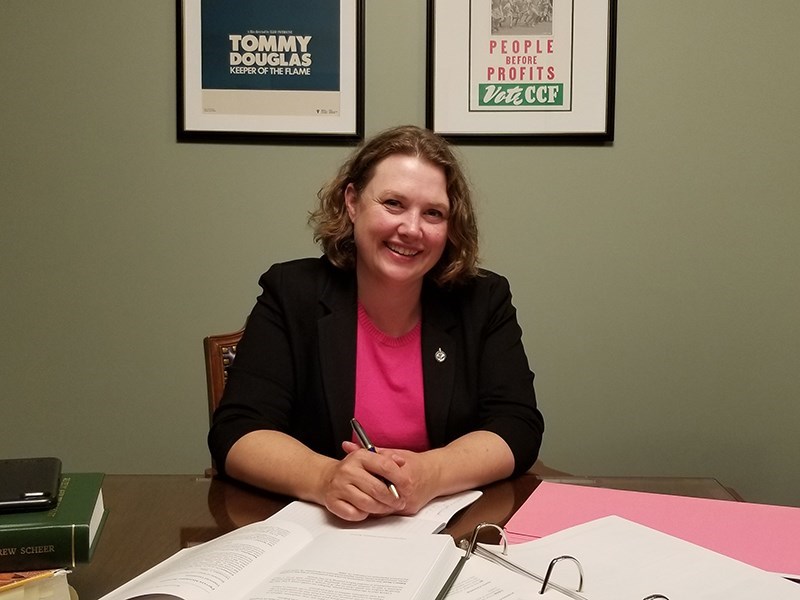The NDP’s Rachel Blaney says she is humbled that voters in North Island-Powell River saw fit to return her to Ottawa as this riding’s MP, and that she is looking forward to continuing her work in parliament.
Blaney was projected to be the winner on election night, and after 254 of 254 polls were counted, received 39 per cent of the vote (21,834), three per cent ahead of her nearest rival, the Conservative Party’s Shelley Downey (20,082).
In third place was Liberal Jennifer Grenz, with 7,263 votes.
Green Party candidate Jessica Wegg had 3,378 votes, People’s Party candidate Paul Macknight received 2,605, Maverick Party candidate Stacey Gastis collected 314, and Marxist-Leninist Party candidate Carla Neal received 88.
Locally, the race was closer than in the 2019 vote, when Blaney beat Downey by five per cent. Blaney said local voters were frustrated by the timing of the early election, and that anger at the snap election call persisted throughout much of the campaign.
“I was actually surprised by how long that stayed,” said Blaney. “I kept hearing frustration that we’re having an election, and people were feeling very frustrated and uncertain.”
Nationally, the election delivered a Liberal minority government. Blaney noted that the snap election cost $610 million, and the results delivered very little change in terms of the makeup of parliament, leading some to call the 2021 vote one of the most status-quo elections in Canadian history.
Issues and concerns
In terms of issues on the doorstep, Blaney said she heard concerns about the federal government needing to take climate change more seriously, transitioning resource industries to a green economy, protecting jobs and housing.
“A lot of people are feeling very frustrated and at risk of homelessness, and the spectrum of people that we’re dealing with under a lack of housing is broader,” said Blaney. “A lot of people are wanting to see some real solutions around affordable housing, that is actually affordable.”
Blaney said she spoke with professional couples in the riding where both partners were working, but were still forced to live in precarious housing.
“There just needs to be more energy put into taking that seriously,” she added. “A lot of times the federal government is treating this issue like it’s an urban issue, and not a rural and remote community issue. And we are proof that that is not the case, and that we really need some specific things to move forward.”
Blaney said while the final results from some ridings across the country are yet to be declared, she hopes her party will succeed in turning a few more seats orange. Regardless of the final results, however, she said New Democrats will continue to push the Liberal government to do better on key issues.
“I think people are tired, and they’re afraid; we’ve been dealing with a lot of hard things in the last little while, so they just wanted us to get back to work,” said Blaney. “So that’s what I’m looking forward to, and focusing on what people really need.”
Blaney said New Democrats in Ottawa will be pushing hard for programs such as pharmacare and dental care, but that the party caucus will need to discuss top priority items that could be conditions for supporting the next Trudeau government.
“We always have to be considering where our line is, and how willing the government is to go into another election,” said Blaney. “When we get into the House [of Commons], and we’re doing that work again, we’ll be able to see and navigate.
“I’m just honoured and humbled to be able to go and be the voice of this region again. It means a lot to me, and I look forward to continuing to work with the communities I serve.”



